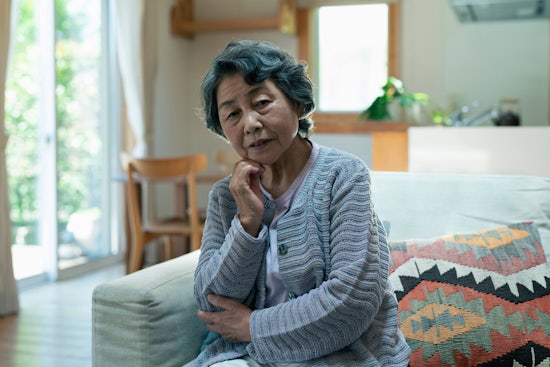Aussie unis and Silverchain partner to reduce loneliness and dementia symptoms
The Fellowship will expand upon a successful pilot program that Dr Samtani and his team co-designed with Dementia Australia Dementia Advocates and which saw significant improvements in social cognitive skills such as understanding oneself and others and communicating with others.

Cognitive decline or early stages of dementia often have troubles communicating, leading to their social network shrinking and that loneliness progressing dementia symptoms. (Source: Shutterstock)
Key facts:
- One in five older adults report problems with loneliness
- People in the early stages of cognitive decline or dementia have trouble keeping their friends, as they struggle with communication
- UNSW Clinical Psychologist Dr Suraj Samtani is testing whether improved social skills can slow decline
The Fellowship, awarded by the Dementia Australia Research Foundation to Dr Samtanis, launches an Australian-first collaboration between leading researchers at Centre for Healthy Brain Ageing (CHeBA), the University of Queensland, and Silverchain — one of Australia’s largest in-home aged care providers — to address the lack of treatment available to directly target social cognitive impairments.
“Improving social cognitive skills may directly address an underlying issue related to social withdrawal and loneliness in older adults with cognitive concerns,” explains Dr Samtani.
“Existing interventions focus on abilities like memory and language in older adults with cognitive concerns, but no comprehensive treatments are available to target social aspects such as interpreting social information, behaving appropriately in social situations and interpreting social information. This includes identifying subtle facial expressions, understanding jokes or sarcasm, adhering to social norms and being assertive.”
The team will now test if the program helps older adults with cognitive concerns to stay socially connected, feel more confident in social situations and contribute to activities that are meaningful for them and have the potential to improve their quality of life. The trial will also test if the program helps older adults with cognitive concerns maintain their overall cognition.
“This partnership with Silverchain will enable us to reach older adults with cognitive concerns living in urban and remote areas,” says Dr Samtani.
“Ultimately our intention is to train Silverchain staff to provide the intervention to thousands of older Australians living at home as part of routine care – to improve mental health and social connection across this demographic with the goal of improving cognitive health.”
The Chair of the Dementia Australia Research Foundation, Professor Graeme Samuel AC, says with dementia affecting almost 50 million people worldwide, research into the condition is now more urgent than ever.
“This project will provide us with valuable insights into how enhancing or maintaining social cognitive skills can improve the lives of people living with dementia,” Professor Samuel says.
Silverchain Director of Research Discovery, Professor Tanya Davison, says Silverchain welcomes the opportunity to help older Australians develop critical social cognitive skills to remain engaged in their communities and stay at home.
“This project is the beginning of a new partnership for Silverchain, UNSW CHeBA and The University of Queensland. It signifies our shared commitment to improving the quality of life and social connections of older Australians,” Professor Davison says..
“The intervention developed by the research team can be accessed online by older people across Australia. This addresses an important barrier for those living in regional or remote areas or unable to travel to traditional services.”
CHeBA Co-Director Professor Henry Brodaty explains that a fundamental aim of the program is to reduce the human and social costs associated with dementia, as well as generate impact to reduce the economic costs of this health challenge.
“The current cost of dementia internationally is estimated to be $818 billion annually and in Australia alone, the estimated cost in 2018 was over $15 billion. By 2056, this figure is projected to increase to $36 billion,” says Professor Brodaty.










